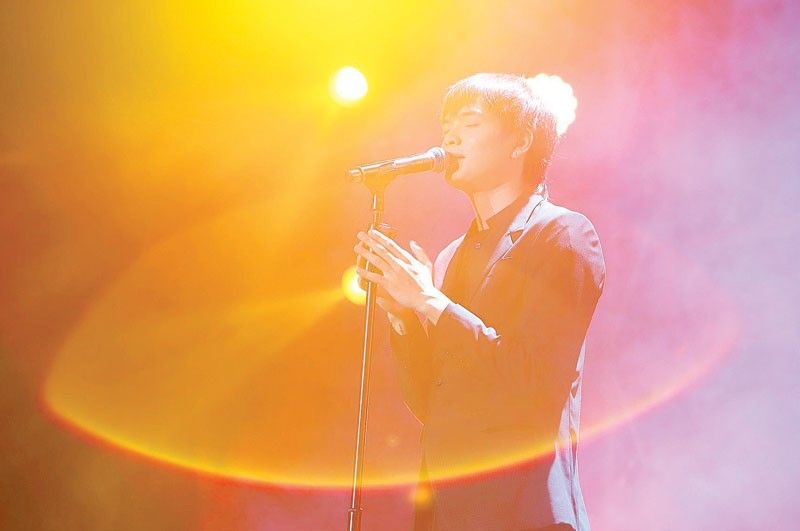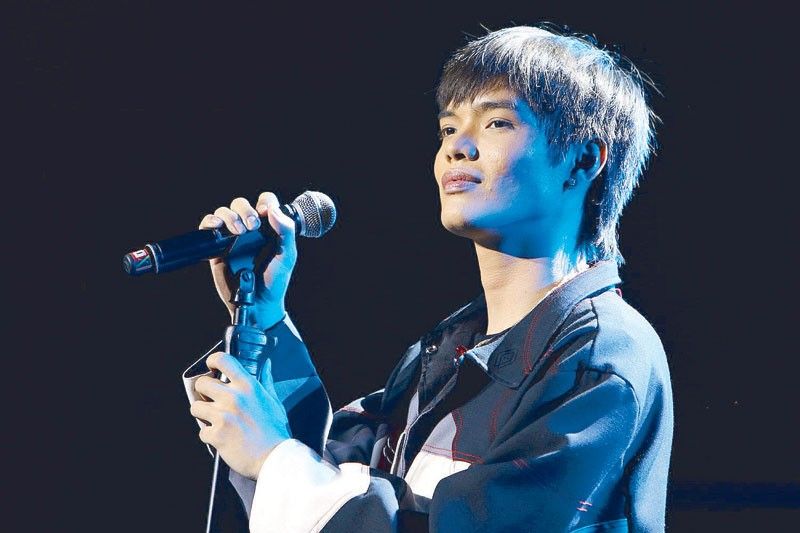Arthur Nery: Soul prince is king of a new breed of Pinoy artists

MANILA, Philippines — R&B/Soul singer and songwriter Arthur Nery is destined to be in the moon from the first time he sang Fly Me To the Moon in a party in his native Cagayan de Oro City when he was eight years old. He even conquered the “universe” when he serenaded the delegates of the recent Miss Universe Philippines.
Two Saturdays ago — armed with his boyish mien, his bubbly and down-to-earth personality, his lilting voice, and his tentative confidence that was the spawning ground of his charm — the 26-year-old singer brought the moon and the universe to New Frontier Theater in Quezon City when he performed his first solo concert to an SRO crowd.
And the Binhi, the collective term for his fans and admirers including some from the gated communities of Dasmariñas Village and Forbes Park in Makati, sprouted with glee as they shrieked and shouted the minute a countdown was splashed and splayed on stage. Binhi is one of his songs that has become an anthem of many millennial and Gen Z groups that went loco when he performed this self-penned ditty at the concert.
The adulation was rapturous one would think the venue would be blown away — hyperbole notwithstanding. Even Vic del Rosario, who helms the Viva Records, the company that has signed up Arthur Nery, had to look around the venue in disbelief about the wild yet friendly reception of the crowd to the artist.
When the singer entered the stage, designed like a fire exit “because I wrote my first song in the fire exit,” Arthur Nery set the venue on fire with just the first three notes of Isa Lang. He looked cool and crisp in his deconstructed black wool suit, whose right sleeve was in red, indicative of his confidence that the prince of soul is the king of new breed of artists in the Philippines.
What makes him king is his voice — its purity transcends one from one realm to another as he sings songs with relatable lyrics; its tone makes one at ease, reflective and nostalgic; its steady range regulates stability in the heart and soul of his audience; its feel is both yearning and celebratory, cathartic and seductive. The pain in his songs is its own balm to the soul.
Nery sings better in a live performance than his recording. Perhaps because the theatrics are apparent in a live concert. His first solo concert was theatrical in many sense — a mezzanine-like structure was built so the violin and viola performers have their own loft stage; the band, to whom Nery was profuse with gratitude, also occupied its own prominent spots on either side of the stage. And Arthur Nery, the singer, was his own actor that night.

He proved the thespian in him when he sang with gusto and affection his hits like Take All the Love, Life Puzzle, Cotton Candy, Higa, and Pagsamo. He even gifted his audience with an unreleased song titled Segundo, Seguro.
When he closed his eyes, he opened himself to his audience — his vulnerability, his joy, his longing. His are songs that are celebratory and melancholic and it helps that he knows how to use his pipes to essay an emotion, to tell a story, good or bad, happy or sad. In the beginning, middle and ending of his every rendition that night was an audience well entrenched in the soft and sinewy lines of his songs.
Nery is not a stage raconteur. He admits to it. But he’s very engaging. He went down the stage to be with his audience for about 10 minutes. Adrenaline rush ensued. When he went back the stage, he had a little pant that somehow affected his singing. But he bounced back quite easily. He would throw the audience his impish smile and heaven would simply open.
He is a grateful soul. So grateful that he brought to his first solo concert his good friends from the five-piece band Just Boys, originally from Cagayan de Oro. Later, Nery performed a duet with Leon, the band’s lead singer. JROA performed Taguan; he is another close friend of him in the industry. Deny and Cean Jr., artists from Viva Records, rolled up to New Frontier Theater to the delight of the crowd.
Pagsamo was Arthur Nery’s encore. His tattoo of two swords at the back of his right wrist peeked out from his right sleeve. The audience pleaded for more. There was banging on the seats, cajoling erupted, “I love you, Arthur Nery” was the chant of the night both coming from men and women.
But Arthur Nery, after more than two hours with 11 songs, had given much of him, of his talent that night. The stage lights were switched off until only the semblance of a fire exit remained illuminated. It took a long while before the spectators left the packed venue. They remained seated, lounging perhaps still on what a delightful, spirited concert they had witnessed.
He was both prince and king of the stage that night. Long live, Arthur Nery!
(E-mail the author at [email protected].)
- Latest
- Trending



















 Partner
Partner












